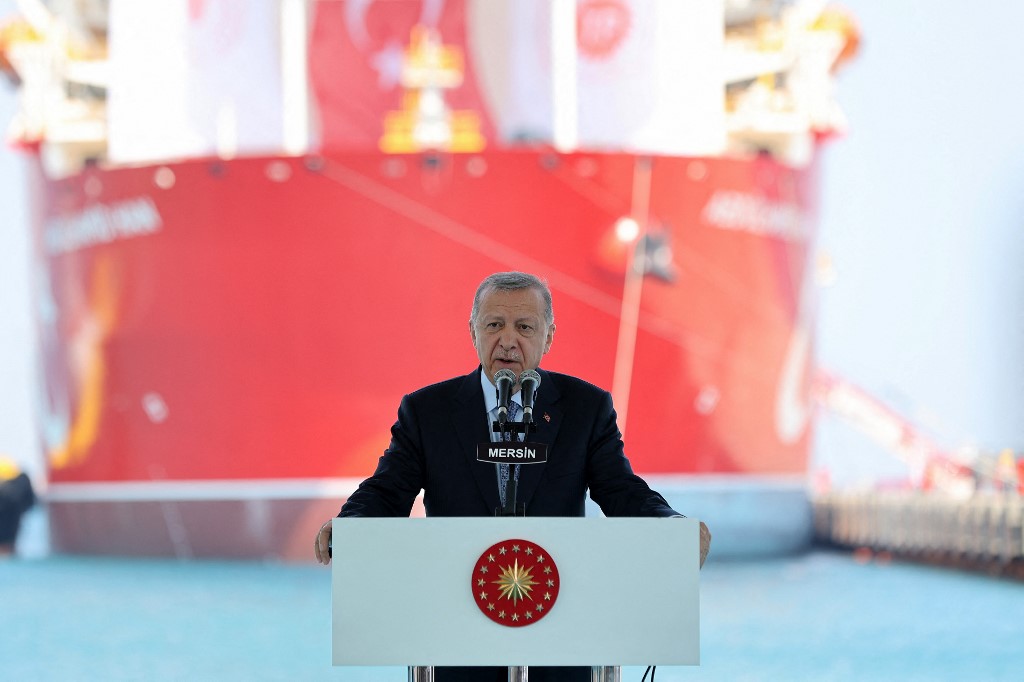President Recep Tayyip Erdoğan has dominated Turkish politics since his Islamic-rooted Justice and Development Party (AKP) swept to power in 2002.
Here are the milestones of his two-decade rule.
2002: Rise of the AKP
Just a year after it was founded, the AKP scored a crushing victory in the November 2002 polls.
The election ended years of political instability but set off alarm bells in the secular establishment and the army.
Former İstanbul mayor Erdoğan became prime minister in March 2003. Fellow AKP co-founder, former foreign minister Abdullah Gül, was elected president in 2007.
2005: EU accession talks
Ankara adopted a range of liberal policies — including lifting a ban on Kurdish-language broadcasts and abolishing the death penalty — that opened the door to formal talks on joining the European Union in October 2005.
The process soon stalled, however, due to lukewarm support for Ankara’s membership from key European powers such as France and Germany.
2013: Anti-Erdoğan protests
In May 2013 security forces cracked down on demonstrators who rallied against government plans to mow down a park near Istanbul’s Taksim Square.
The repression sparked nationwide demonstrations against Erdoğan but petered out after a month.
He was elected president in August 2014 with 52 percent of the vote, in the first presidential election held by universal suffrage.
2015: Peace with Kurds collapses
In July 2015 a ceasefire between the state and the outlawed Kurdistan Workers’ Party (PKK) collapsed, reviving a separatist insurgency that has left more than 40,000 people dead since 1984.
The mainly Kurdish southeast saw months of heavy fighting.
Turkey was also the target of several attacks blamed on the extremist Islamic State of Iraq and the Levant (ISIL) group based across the border in Syria.
2016: Purges after failed coup
Renegade soldiers attempted a coup in July 2016, but it was swiftly crushed.
Erdoğan blamed the uprising on exiled US-based Muslim cleric Fethullah Gülen and his movement. Gülen strongly denies any involvement in the coup attempt.
In an unprecedented crackdown that further set back Turkey’s EU membership ambitions, tens of thousands of people were arrested, more than 140,000 fired or suspended from their civil service jobs and nearly 3,000 sentenced to life in prison.
2018: Super-presidency
In June 2018 Erdoğan won sweeping powers in a new presidential election held after a referendum that dramatically boosted his powers.
His AKP also held on to its majority in parliament but lost control of big cities, including İstanbul and Ankara.
2020: US sanctions
Ties with the United States were strained over Turkey’s controversial purchase of a Russian air defense system.
After multiple threats, Washington suspended Ankara’s involvement in the F-35 joint strike fighter program and sanctioned Turkey’s defense sector.
2022: Inflation crisis, Ukraine
Inflation soared to 85.5 percent in October 2022, and the lira lost half its value as the Turkish economy went from boom to bust.
Erdoğan was widely criticized for his handling of the crisis but wins praise for his response to the war in Ukraine.
Using his good relations with both Moscow and Kyiv, he tried but failed to negotiate a truce. But he managed, with the United Nations, to convince Russia to end its blockade of Ukraine’s Black Sea ports.
2023: Devastating earthquakes
On February 6, magnitude 7.8 and magnitude 7.5 earthquakes caused massive destruction in southeast Turkey, killing more than 50,000 people.
The slow response of the Turkish state and the continuing economic crisis left Erdoğan fighting for his political life in May 14 presidential and parliamentary elections. Yet he received 49.5 percent of the vote, leading longtime opposition leader Kemal Kılıçdaroğlu by almost five percentage points on May 14. Erdoğan and his allies also won the majority of the seats in the Turkish Parliament.
Erdoğan goes into the May 28 runoff as the favorite.
© Agence France-Presse



